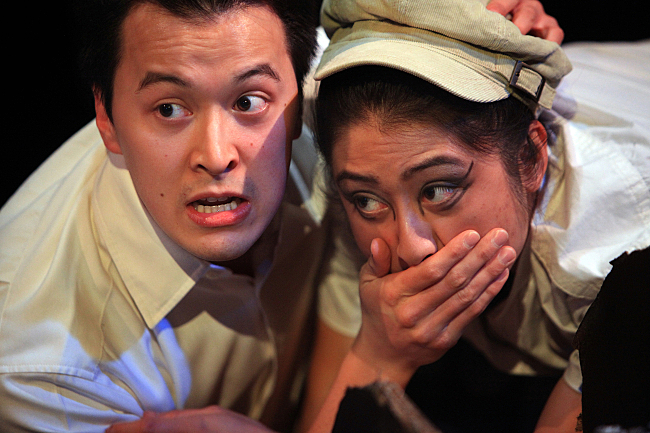Multiracial in America: Who gets to be “white”?
Hopes&Fears
2015-12-15
Jeremy Gordon

The author with his parents, Mary and Dennis Gordon.
Jeremy Gordon on growing up multiracial, assimilation and “whiteness” in post-Obama America.
Every Christmas, when the dishes have been cleaned, when the presents are exchanged and the photos snapped, my cousins and I book it out of my aunt’s house in the suburbs for the comfort of the city, where we spend the rest of the night in each other’s company—playing video games, getting drunker, eating a second meal to close the holiday. Last year, we drove to a dim sum restaurant in Chicago’s Argyle neighborhood, which my Chinese family has patronized for my entire life.
Times had changed, though. We assumed we’d be seated right away, but the restaurant was full. As far as I could remember, it was the first time we’d ever had to wait for a table—and this time, we noticed that most of the diners were white. As we waited for our names to be called, my cousin couldn’t help but gripe. “I can’t believe we’re stuck behind all these white people!” she said. “Can’t they go somewhere else?”
My cousin is not a facetious woman, so the comment didn’t register as a joke. Nevertheless, her brother and I managed a laugh. It was true—the restaurant was filled with white people, whose grannies had never used Mandarin to order from the sullen teenagers pushing the dim sum carts around. But the complaint was a little awkward because of an incontrovertible fact: My cousins and I are half-white, each of us the offspring of a Chinese woman and a Jewish man…
We look about half-and-half—not quite white, not quite yellow, definitely a little something. White people might see us as Chinese—or, failing their ability to pinpoint our race, an ever-ambiguous “person of color”—but there are plenty of Chinese who might insist we were white. Joking about “white people” when that might be us—it’s an easy laugh, but ultimately disingenuous. Wondering what to identify as—white, Chinese, or something else—is something I, my cousins, and many multiracial people have struggled with for our whole lives, to no definite conclusion…
…Multiraciality is a young identity, one that didn’t formally come into existence until the 1980s. G. Reginald Daniel is a sociology professor who’s taught a class on multiracial identity at the University of California, Santa Barbara for nearly three decades, and even he can’t identify its first usage. He points to television shows like Oprah and Sally Jessy Raphael, where panels on multiracial experiences featuring multiracial people were hastily conceived. “The first time I heard the word multiracial used was on The Phil Donahue Show in 1988,” he tells me. “I was pretty shocked because I’d never heard that word before. Prior to that, nobody was talking about this, surely not in public.”..
Read the entire article here.


